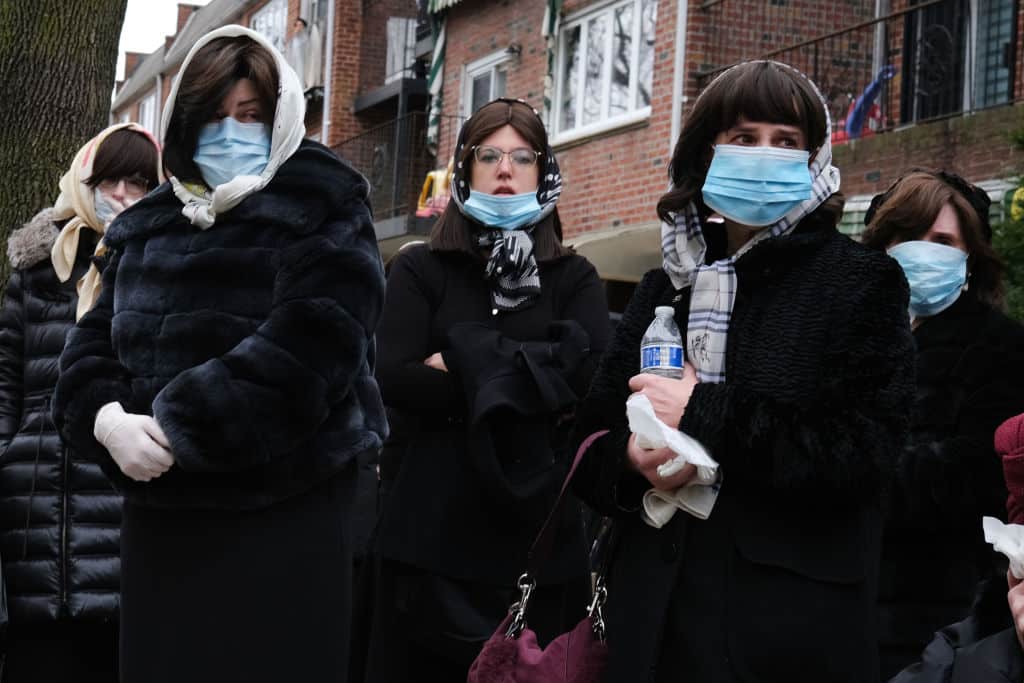 Women wear face masks as they join hundreds of members of the Orthodox Jewish community attending the funeral for a rabbi who died from the coronavirus in New York City. (Photo by Spencer Platt/Getty Images)
Women wear face masks as they join hundreds of members of the Orthodox Jewish community attending the funeral for a rabbi who died from the coronavirus in New York City. (Photo by Spencer Platt/Getty Images) “Killed and will kill people en masse,” “Our blood is on his hands,” “delusional and dangerous”—these harsh remarks, posted on social media in the past few days, refer not to some arch-terrorist captured on his way to murder Jews, but to Israeli Health Minister Yaakov Litzman, a haredi Jew. Jews were the ones who wrote them.
This might not be a popular opinion these days, but Litzman has been a good health minister. He has boosted the list of government-subsidized medications by millions of shekels, added medical equipment, built hospitals, introduced reforms that benefit the elderly and programs like subsidized dental treatment for children.
Now, in the midst of a global pandemic—a pandemic that will go down in history, a pandemic that has wrought havoc in powerful Italy and Spain—the health-care system in little Israel is in good shape. If there were thousands of bodies here, you would be blaming Litzman, wouldn’t you? But there aren’t, so give him some credit.
You don’t agree? That’s fine, but tell the absolute truth: Isn’t the criticism of Litzman especially venomous because of his Yiddish, his beard and his attire? The criticism of him indicates something about the public’s feelings regarding what’s happening in Haredi city of Bnei Brak. There is a feeling that it goes beyond concern for the city’s residents themselves. The discourse about Bnei Brak reeks of prejudice.
The discourse about Bnei Brak reeks of prejudice. If there had been an outbreak in the relatively secular Givatayim, no one would call the residents “polluted” or “infected,” or call to “lock them up in their ghetto.”
If there had been an outbreak in the relatively secular Givatayim, no one would call the residents “polluted” or “infected,” or call to “lock them up in their ghetto.”
One young haredi man tweeted on Thursday: “I went to a supermarket in a non-religious area. I was standing in line, with everyone, myself included, keeping a distance of two meters or more. An old man who was standing in front of me with his wife turned to me and complained that I was too close to him. I told him I was more than two meters away, just like everyone else. He answered, ‘Yes, but you’re haredi. You need to stay farther away.’ ”
Even if the criticism is just, the venom is dangerous.
Yehuda Shlezinger writes for Israel Hayom.























 More news and opinions than at a Shabbat dinner, right in your inbox.
More news and opinions than at a Shabbat dinner, right in your inbox.